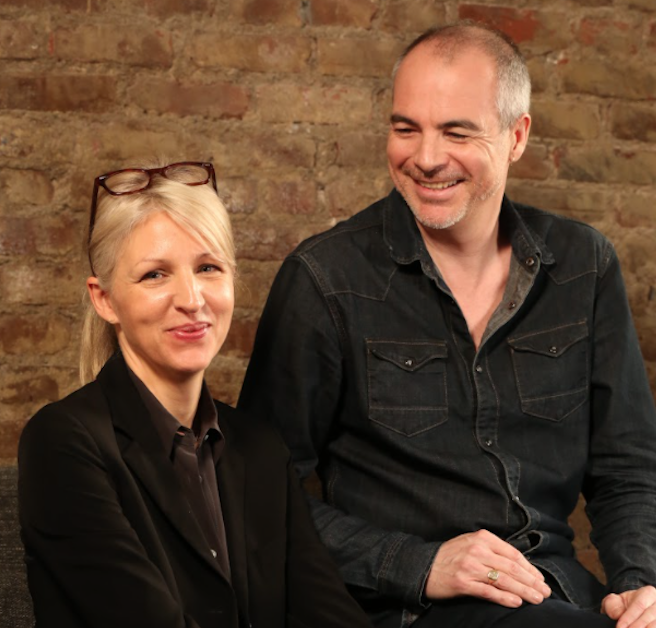Written by
Melissa Lohrer
When something changes, before it gets simple, it gets complicated. It's true of all things - branding included.
The ever-connected internet age has upended the way people interact with brands. Everything has transformed, from the way brands communicate to the foundational promises consumers expect brands to fulfill.
It’s a massive shift. Not in a way that paralyzes, but in one that creates opportunity for forward-thinking agencies. The timing is ripe to question the role of agencies, take stock of the value we bring, and reflect on what’s helped us grow.

In the first post of our series of celebrating clarkmcdowall’s 20-years in business, founding partners Catherine Clark and Paul McDowall explore the evolution of the branding industry and the role of agencies in a speed-of-life world.
Here are the major ways we’ve seen the industry—and the responsibility of agencies—shift in a speed-of-life world.
Shift #1:
Providing Answers > Creating Conversations
If we were to step into a time machine and travel at random to any agency-client meeting two decades ago, there’s a good chance it would look like this: the client arrives with a problem, and looks to the agency to deliver a clear answer.
Sometimes, those answers would live in a binder on a shelf—often providing useful insight when needed, and occasionally collecting dust. That’s not the case anymore.
With ever-growing pressure for pragmatism, CMOs need to be able to prove the impact of work immediately. The pressure to deliver has never been higher—and so the need for empathy among agencies has never been greater.

But how does empathy translate into work with provable value? Sometimes it means understanding where silos need to be broken down and fragmented narratives need to be unified. With this knowledge, agencies have the power to shape how teams work together and act as catalysts to bring about results more quickly—as in the case of our recent work with Harman.
And often it revolves around finding new ways to travel far beyond transactional relationships. Because in the same way that brand teams are seeking empathy from agencies, so, too, are consumers seeking to be understood by brands rather than to make a simple purchase.
Are your agency partners going beyond the transactional? Are they simply giving you answers—or are they collaborating with you to identify long-term solutions?
Shift #2:
Betting on the Future > Responding to the Now
Remember when connecting to the internet was a conscious decision—one that required a desktop computer, dial-up, and a healthy dose of patience? In fact, back when we opened our doors in 2000, only about half of Americans were even connected to the world wide web at all.
Now, we’re engaging with brands from our morning commute podcast to our before-bed Instagram scroll. On average, we’re being exposed to such a mind-numbing number of brand messages—possibly 10,000 a day—that we humans are getting better and better at filtering out the noise without even consciously doing so.
For marketers, that means creating a strategy to elevate your brand is no longer a one-and-done process. Every moment you have with a consumer is a 1 in 10,000 chance to win their attention, and the rules of the game are always changing. How can you confidently plan for months in advance when what worked today may not have the same result tomorrow? The span of time that defines “now” is a lot shorter than it was 20 years ago. Branding in a speed-of-life world requires a speed-of-life approach. For agencies, that means creating work that speaks to the present instead of only betting on the future.
The span of time that defines “now” is a lot shorter than it was 20 years ago. Branding in a speed-of-life world requires a speed-of-life approach. For agencies, that means creating work that speaks to the present instead of only betting on the future.
But it also gives agencies the responsibility to empower teams to keep moving. Rather than foster dependency, your agency should provide the tools that allow your team to carry out work into the future. The right practices and frameworks are what give work lasting power.
Shift #3:
They’re Them > We’re Us
In his book The Infinite Game, Simon Sinek distinguishes between two types of games. Finite games, like chess, are played with a final objective in mind. But in infinite games, there is no end goal—there aren’t even set rules.
Brands shift. Brands evolve. Brands re-invent themselves. And while there are always sales plans and KPIs, for as long as a brand exists, there’s never an end destination. After every new campaign concludes, the game goes on.
Sprint culture can sometimes leave agencies feeling like every initiative can be wrapped up in a neat package, perfectly complete. But zoom out and you’ll see that this new way of working isn’t a sprint—it’s more like a relay race. In 2020, agencies hold a collective responsibility to know their role. It’s on us to plug into the way brands work—not the other way around—and our success hinges on knowing when to step into the race and when to pass the baton.
In 2020, agencies hold a collective responsibility to know their role. It’s on us to plug into the way brands work—not the other way around—and our success hinges on knowing when to step into the race and when to pass the baton.
Businesses have shifted their thinking from a mindset that prioritizes competition to one that weighs the benefits of strategic collaboration. It’s only natural that agencies follow suit.
Ask yourself: is your agency competing in a solo race—or do they have a team mindset, valuing what each partner brings to the table and what you can all achieve together?
To follow along as we look back on 20 years of clarkmcdowall and share what’s coming for us in the next chapter for the business, follow us on LinkedIn.
Sign up for the latest news and views
